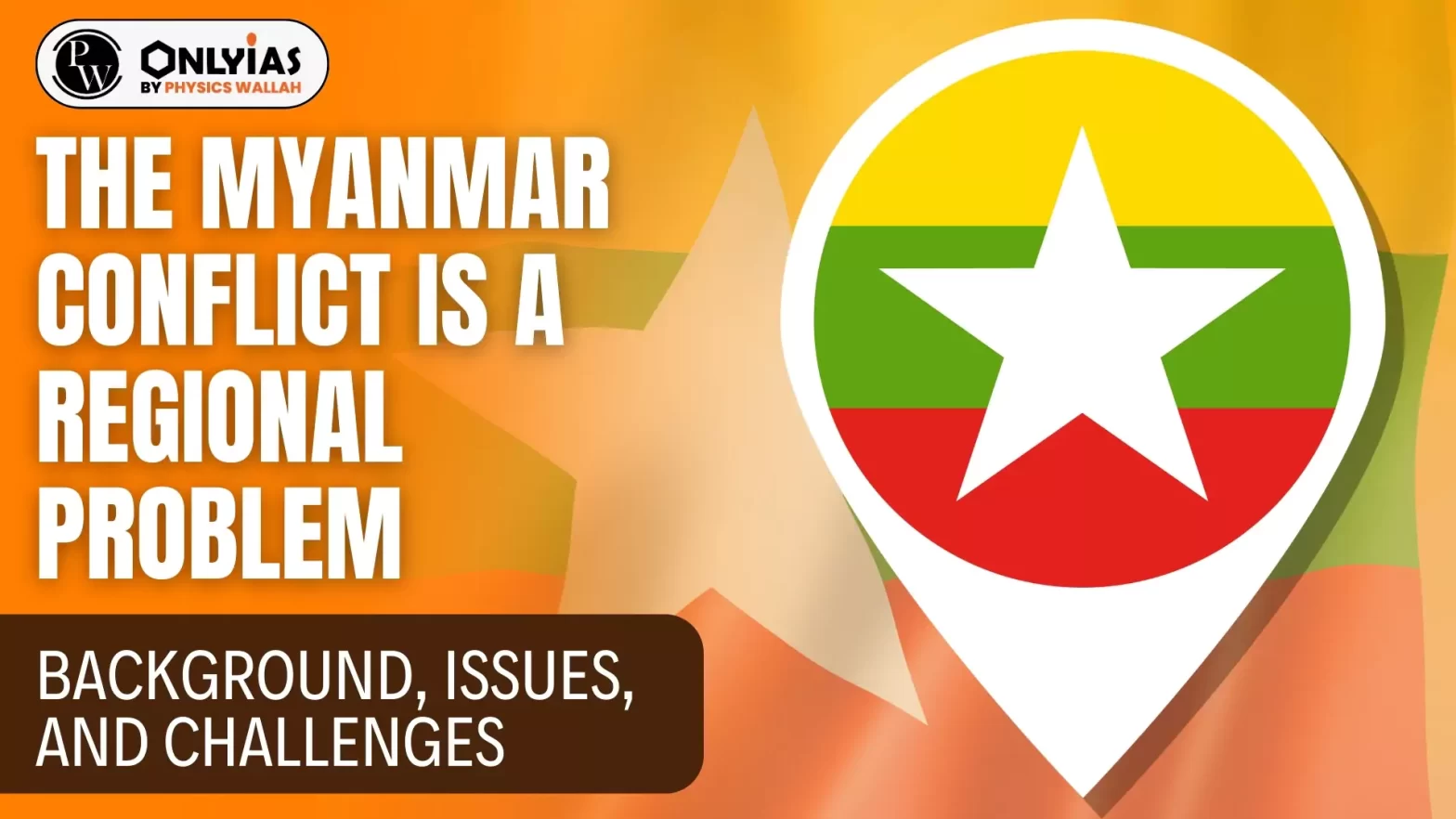![]() 18 Mar 2024
18 Mar 2024

This editorial is based on the news “The Myanmar conflict is a regional problem” which was published in the Hindu. ASEAN and others need to support Myanmar’s independent media and people in their battle for a truly democratic country.
| Relevancy for Prelims: Myanmar Conflict, India Myanmar Relations, Free Movement Regime Between India And Myanmar, Myanmar Refugees In India, and Smart Fencing For India-Myanmar Border Management.
Relevancy for Mains: India and its Neighbourhood relations |
|---|
| Prelims PYQ (2015):
In the Mekong-Ganga Cooperation, an initiative of six countries, which of the following is/are not a participant/ participants? 1. Bangladesh 2. Cambodia 3. China 4. Myanmar 5. Thailand Select the correct answer using the code given below. (a) 1 only (b) 2, 3 and 4 (c) 1 and 3 (d) 1, 2 and 5 Ans: (c) |
|---|
| Mains Question: Analyze the current political and socio-economic situation in Myanmar. Discuss how these developments affect India’s foreign policy and regional stability. (15 Marks, 250 words) |
|---|
| Must Read | |
| NCERT Notes For UPSC | UPSC Daily Current Affairs |
| UPSC Blogs | UPSC Daily Editorials |
| Daily Current Affairs Quiz | Daily Main Answer Writing |
| UPSC Mains Previous Year Papers | UPSC Test Series 2024 |

<div class="new-fform">
</div>